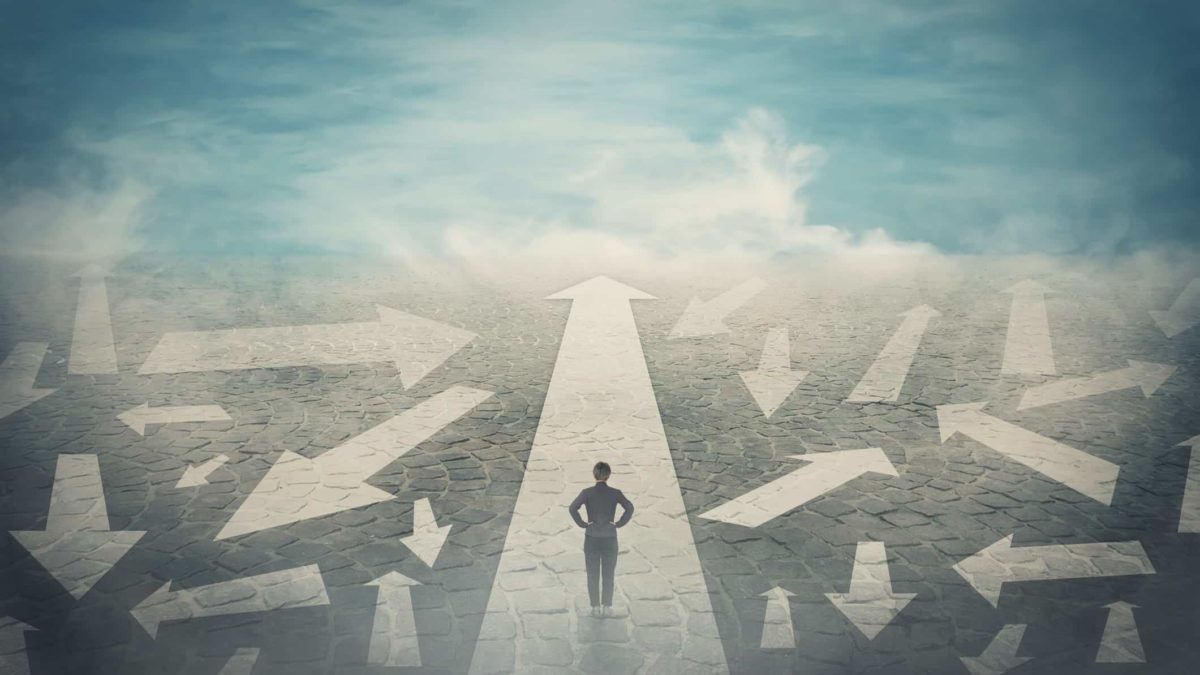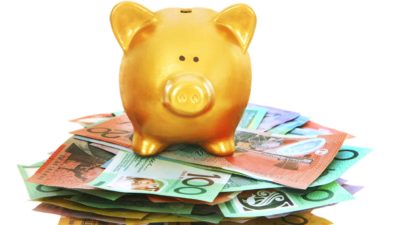Something a little different, today.
I usually write specifically about investing, sometimes with reference to the wider world.
This time, I'm going to do the reverse. Because there are some big macroeconomic changes taking place – and not just the transitory recession we're currently living through.
Changes that will likely transform the economic and political environment in which we invest.
In short, COVID-19 is rewriting the social contract.
Before the Great Depression, government support, in the form of welfare and other safety nets, was pretty sparse, if present at all.
The Great Depression – and the social disruption (and human misery) it caused – ushered in a new deal.
Quite literally: then-US president Franklin D. Roosevelt used exactly that term, and with capitals: The New Deal.
To quote directly from Wikipedia, it:
"…focused on what historians refer to as the "3 Rs": relief for the unemployed and poor, recovery of the economy back to normal levels, and reform of the financial system to prevent a repeat depression."
It was recognition that a prosperous nation, even as it went through tough economic times, could and should do more to look after its least fortunate citizens, and to accelerate recovery.
It was encouraged (even enabled) by the recognition that government balance sheets could run extended deficits during tough times, to be paid off when things improved.
Now, I'm no historian. But the New Deal was remarkable for the speed and size of the response, and it was more remarkable (in hindsight, and probably also at the time) for how it changed the expectation of what the government should do.
The same was true here in Australia of Medicare, some four decades later. Once a partisan and hotly debated issue, it has come to be all-but untouchable, sharing widespread bipartisan support (except for the knuckleheads at the fringes), and we look at other countries (no names, no pack drill, but one of them rhymes with 'United States') and wonder how it's possible their healthcare isn't more universal, and how such a program could even reasonably be called 'socialism' as some detractors suggest.
A dozen years ago, having learned from some of the errors of the Great Depression, the USA and others met the GFC with unparalleled spending, including corporate bailouts, to avoid a repeat of the late 1920s and early 1930s. And, as if to give economists a control group to compare, some countries, notably in Europe, followed an austerity strategy instead.
Newsflash: It didn't work.
If it wasn't already clear, it became crystal: Keynesian economics – spend in tough times, and recover it in the good times – was not only a more humane approach, but it was smart economics.
There really are very few serious scholars who'd tell you that we'd have been better off to let banks and businesses fail in 2008, putting millions more out of work.
Back in 2020, though, and the GFC almost feels both quaint and ancient history, by comparison to our current challenges.
This pandemic, a truly once-in-a-century occurrence when that term is otherwise overused, is a public health emergency. And the response to that emergency was to – knowingly and deliberately – create another emergency; this time an economic one as jobs and businesses were essentially put into a deep freeze.
And the size of the response has been mindblowing.
We've seen right-wing governments in the USA, the UK and here in Australia, who are otherwise fiscal conservatives, throw money at the problem like there was no tomorrow.
And we can debate whether that was right or wrong (I'm in the former camp, for the record), but I think the more interesting conversation is about what the decision means for the role of government – both from the politicians themselves, but also what we expect, as citizens.
Along the lines of FDR's '3 Rs', we've seen a radical redefinement of not only what the government should do, but also how much it should do… and spend.
Indeed, the various programs – from the forgiveness of airline landing fees to the $100-plus billion being spent on JobKeeper and JobSeeker – are larger than even the most strident social democrat might have dared hope, only 12 months ago.
And the line between what we expect of government, and what it deigns its role to be, has all but vanished.
As Treasurer Josh Frydenberg said, referencing a conversation he had with John Howard, there is no ideology in a crisis.
Which is as it may be, but more accurately, ideology is actually being rewritten with each passing day.
Big Government – now and in future – is the order of the day. It simply has to be that way, given the size of the stimulus as a share of GDP, and considering how long it'll take to pay off.
Again, I make no judgement on whether that's good or bad – it just is, and will be for years.
It goes further, too. With notable exceptions (I'm looking at you, Bunnings Karen), we've accepted a huge increase in the role of government when it comes to restricting our movement and, yes, deciding whether or not we cover our faces.
We've let them close state borders, for the first (meaningful) time since Federation, as well as closing the country's borders to all but a limited number of returnees.
It is no small thing to see a conservative government run up a multi-generational debt in a matter of months.
The 'budget emergency' and 'debt and deficit emergency' are gone.
We're all Keynesians now.
It is, in some senses, the natural extension (even if created by an unnatural health crisis) of a creeping change in what we've increasingly come to expect from our governments.
We've always wanted roads, water, electricity and law & order / defence.
Now we want an NBN, low unemployment, industry assistance, JobKeeper, a higher rate of unemployment benefit, healthcare, turbo-charged bushfire protection, a disability insurance scheme and plenty more. Not only that, but governments are also throwing billions and billions of dollars at a cure for COVID-19.
Only just last week, The Economist wrote about:
"…the $7trn which governments across the world have spent or pledged since the pandemic began in order to preserve incomes and jobs".
Thats $7 trillion. In US dollars.
More than $10 trillion Australian dollars.
And – let me say it again – I make no judgement, here, on any of that.
I simply make the point that it is real. It's a thing.
As a society (and the same is happening around much of the Western world), the majority actively want more government in their lives (yes, even those who say they want smaller government and more individual freedom and incentive, but who still want support, right now!).
It doesn't stop there. Plenty of people, including high profile commentators like Alan Kohler, for example, are calling for a 'jobs guarantee' – essentially (and this is a necessary simplification, so please take it as such) a job for anyone who wants one.
If you're of a certain age, that should remind you of a particularly 'socialised' approach to economic management. A government that promises a job to anyone who wants one is either appropriate, Utopian, or socialism, depending on your particular economic and social ideology.
But whatever your view, what strikes me is how mainstream these types of approaches have become – something that, despite the partisan views of the culture-warriors, would have been unthinkable only 20 years ago.
Indeed, Josh Frydenberg recently citing Thatcherism, while presiding over a $100-plus billion stimulus package, might just be the most incongruous thing we'll see this year… and in 2020, that's saying something!
(And then there's the rise of 'Modern Monetary Theory' which, grossly simplified, says government debt isn't real. And/or that there should be no limit. Put me down as a capital-S sceptic. Sounds more like MPT – Magic Pudding Theory – to me.)
At the same time, we're continuing to see an acceleration in the rise of economic nationalism, as populist leaders turn their backs on (imperfect) win-win outcomes in favour of lose-lose outcomes dressed up as 'protecting [insert nationality here] jobs'.
And, of course, we continue to face a larger and more existential threat in climate change which, though likely given a breather (no pun intended) by the economic impacts of COVID-19, remains an ever-present problem that world leaders are showing little progress in addressing.
I have my own thoughts, but I come with no concrete answers – either to what's right or wrong, or what will come next. In one version of the future, we all become like the Nordic countries, with higher taxation and acceptance of a larger role for governments. In another, a Trump-like figure rises up in opposition to 'too much government'.
For businesses, more government might mean more regulation, or higher taxes. It might change the competitive dynamics of industries, and/or the areas in which government sees a new/renewed role for itself.
We might see Australia Post as an alternative bank, for example, or the reversion of aged care, electricity and/or transport into government hands.
And, of course, we'll need to learn to either live with an astronomical level of debt, or work out how to pay for it with increased taxes and/or lower government spending, each of which will have an impact on the economy, and for jobs and profits, accordingly.
As an investment advisor, you might wonder about my view on the impact for our companies.
The bad news is that the outlook is as uncertain there as it is elsewhere.
But if I was a betting man, I'd be pretty keen to own businesses with scale, and with meaningful pricing power, both of which offer protection against inflation and a fickle consumer.
I'd happily own shares in a disruptive business, but I'd want to know it was producing a product or service that was self-evidently in demand. Creating its own demand could need something very special in a world where growth in discretionary spending might be hard to come by.
So, perhaps as a combination of the two factors, above, I'd want growing sales and healthy profit margins.
The good news is that even if I'm wrong about some of the impacts, businesses that share those characteristics are likely to win in any environment.
In short; resilience – always valuable, in any market – will be especially important in an uncertain economic and social future.
And not just for our investments, but in our finances and employment, too.
Fool on.









